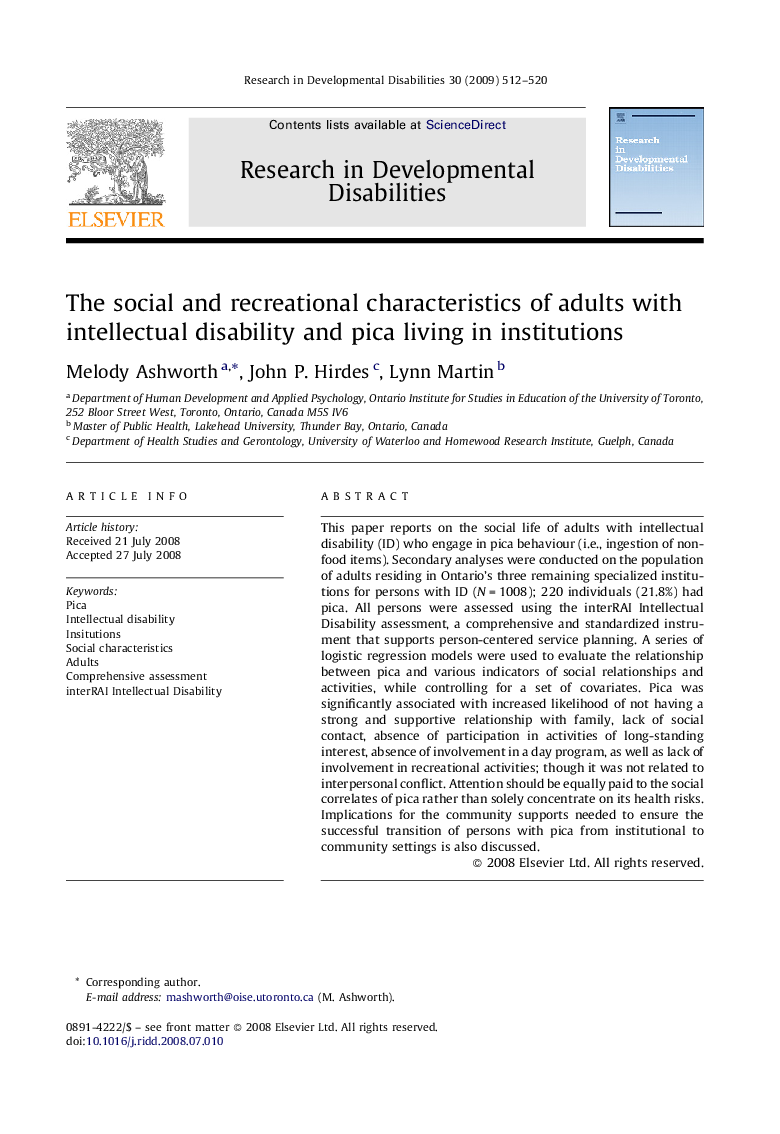| Article ID | Journal | Published Year | Pages | File Type |
|---|---|---|---|---|
| 371367 | Research in Developmental Disabilities | 2009 | 9 Pages |
This paper reports on the social life of adults with intellectual disability (ID) who engage in pica behaviour (i.e., ingestion of non-food items). Secondary analyses were conducted on the population of adults residing in Ontario's three remaining specialized institutions for persons with ID (N = 1008); 220 individuals (21.8%) had pica. All persons were assessed using the interRAI Intellectual Disability assessment, a comprehensive and standardized instrument that supports person-centered service planning. A series of logistic regression models were used to evaluate the relationship between pica and various indicators of social relationships and activities, while controlling for a set of covariates. Pica was significantly associated with increased likelihood of not having a strong and supportive relationship with family, lack of social contact, absence of participation in activities of long-standing interest, absence of involvement in a day program, as well as lack of involvement in recreational activities; though it was not related to interpersonal conflict. Attention should be equally paid to the social correlates of pica rather than solely concentrate on its health risks. Implications for the community supports needed to ensure the successful transition of persons with pica from institutional to community settings is also discussed.
